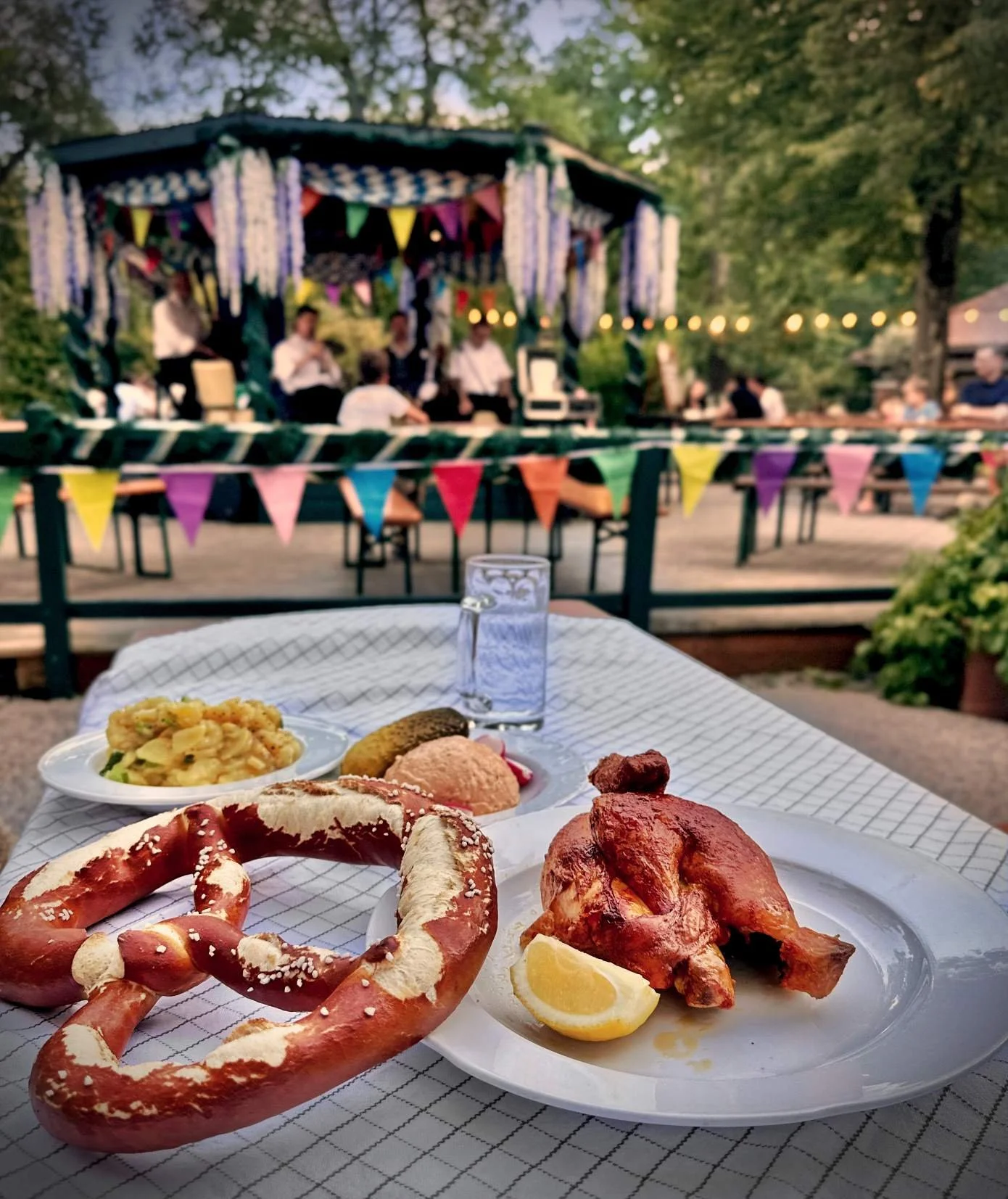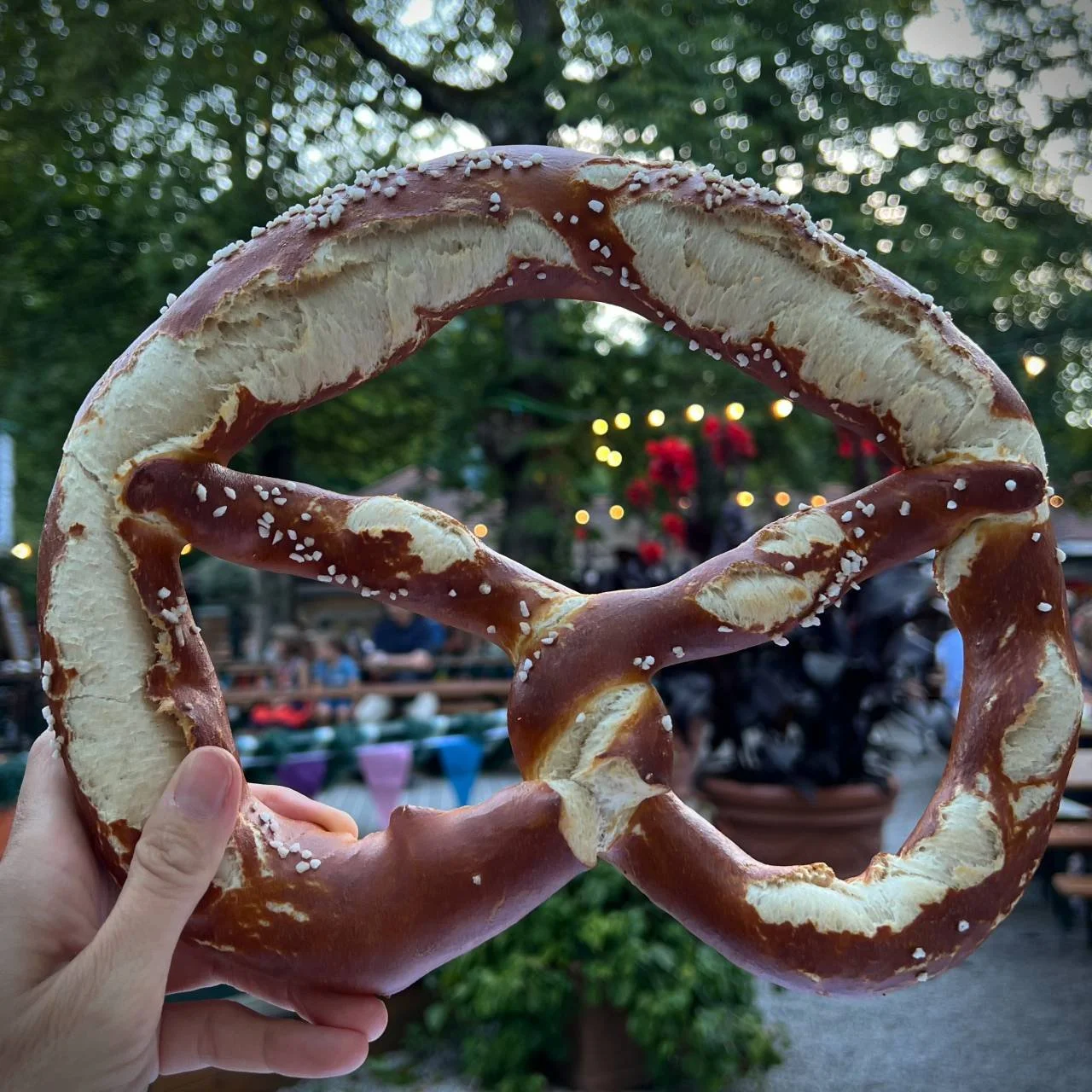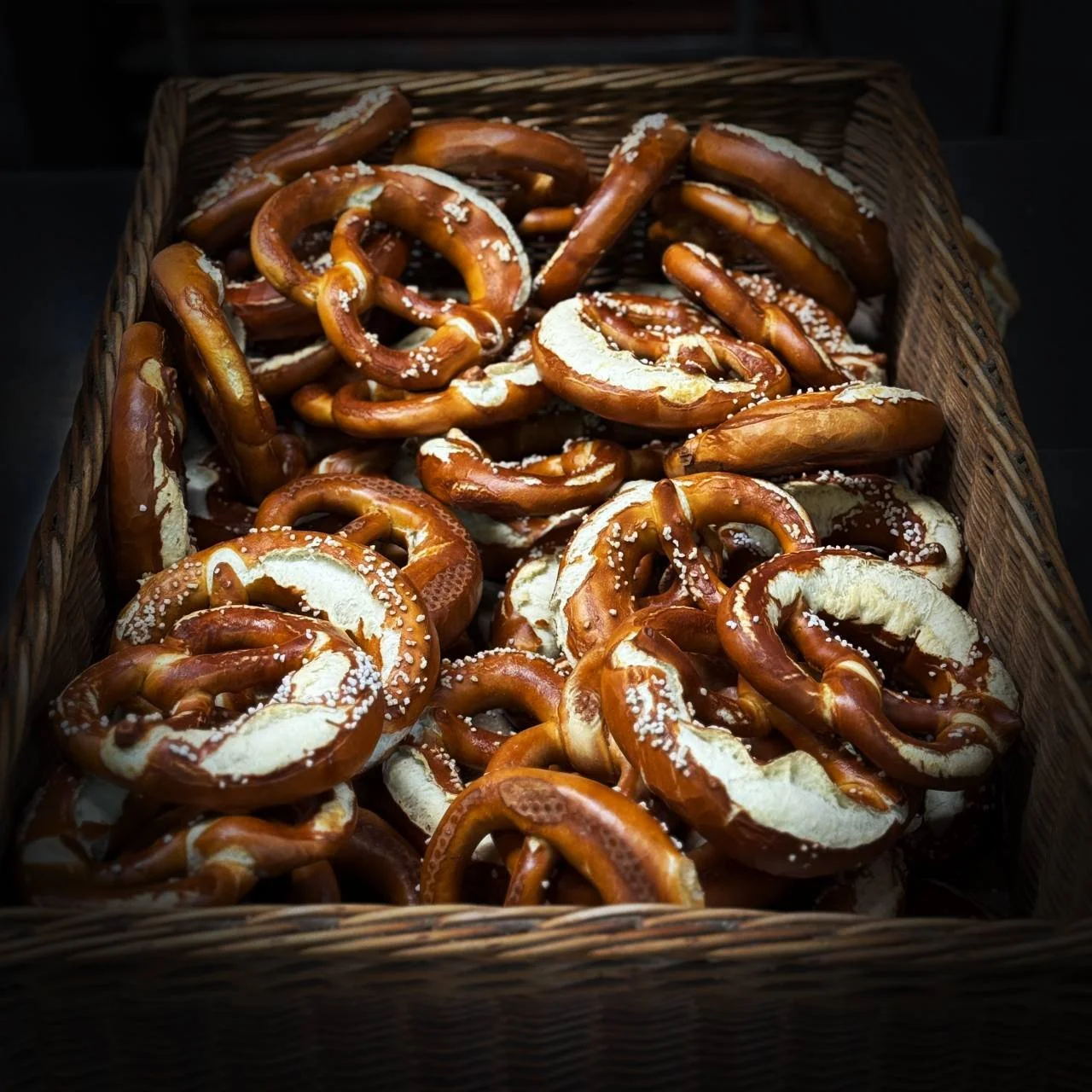Waldwirtschaft - Beer Garden above the Isar
Munich’s most beautiful beer garden sits high above the Isar in Pullach, to the south of the city.
This picture-perfect beer garden, shaded by ancient chestnut trees, offers fantastic food, live music, a mini-golf course, a playground, Spaten beer on tap and an incredibly diverse mix of guests.
For those preferring a bit of elegance without having to mince across gravel, the historic tavern offers table service.
Families with children who want a casual, budget-friendly visit can grab drinks at the counter and unpack their own picnic at the tables near the playground.
We love sitting by the music pavilion with sizzling roasted chicken or ribs, fresh pretzels and Obazda, grilled fish or cinnamon-sugared Aus‘zogene.
We only bring a tablecloth and candles for added coziness because at the Wawi, we know we’ll be staying a while.
Bavarian Tradition
Bavaria’s beer garden culture is something we especially treasure in summer and the Wawi has everything we dream of - a beautiful green setting, joyful atmosphere and excellent food.
Actually this special place has had hundreds of years to become what it is today.
For 55 pounds pennies, as early as 1301, the Holy Spirit Hospital in Munich purchased the estate at Hesselohe, the site where we now enjoy our summer evenings.
The hospital established Munich’s first social station for the poor and sick here.
The small Holy Trinity Chapel, which stands behind today’s guesthouse, hosted church festivals and fairs even back then.
In the early 19th century, a dance pavilion was added.
Watching a jazz band play at the Wawi today is a charming nod to that era.
Cool Beer Cellars
In 1818, a beer cellar was dug on the Wawi grounds.
To keep beer from spoiling during warm summer days, Munich’s beer cellars were typically carved deep into the Isar terraces.
Gravel paths and wide-spreading chestnut trees above the cellars helped maintain the cool temperature.
This functional setup became a hallmark of Bavarian beer gardens, cherished for their towering old trees.
The Isartalbahn
The first train line between Pullach and Munich was completed in 1854.
Though we often prefer biking to the Waldwirtschaft, following the scenic Isar all the way from Munich, there’s also a certain charm to hopping on a train for a relaxed trip to and from this idyllic spot.
The Beer Garden Revolution
The “Bavarian Beer Garden Regulation,” taken as seriously as it sounds, has strong ties to the Waldwirtschaft.
In 1995, a “Beer Garden Revolution” saw 25 000 Munich residents fighting for a piece of their culture.
New neighbors near the Wawi had complained about the noise, nearly enforcing a 9:30 p.m. closure.
After the loud protests, beer gardens were officially designated a protected cultural tradition with clear definitions.
According to this regulation, beer gardens are defined by their outdoor seating under trees; guests can bring their own food, purchasing only drinks on site.
Their closing time was extended to 11:00 p.m.
This is why, on warm summer evenings, we sit under the Wawi’s chestnut trees, surrounded by friends from all walks of life, enjoying one of Bavaria’s finest traditions until the music fades out at eleven.






